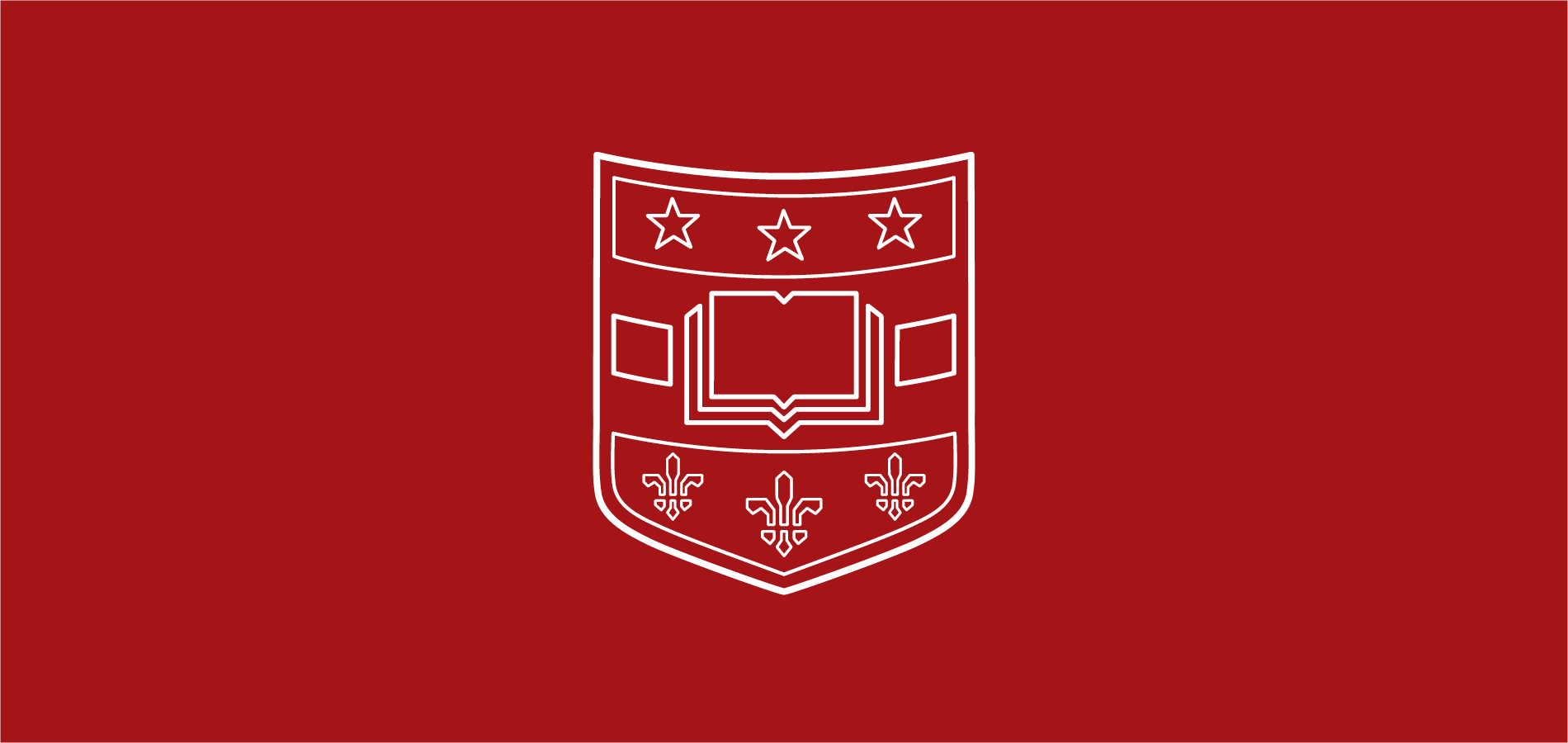
A Look at LGBTQ+ Periodicals
As part of our continued celebration of LGBT History Month this October, we are highlighting a few of the historic local periodicals in Washington University Libraries’ LGBTQ+ Research Collection.

The LGBTQ+ Research Collection, much of which comes from the St. Louis LGBT History Project, contains multiple boxes of periodicals catering to the gay community from the local St. Louis and Midwestern region, as well as national periodicals. Some of the titles contained in these boxes include Gay Life: The Midwest Gay Newsleader, The Gay News-Telegraph (later titled The Lesbian and Gay News-Telegraph), and Current News.
Gay Life: The Midwest Gay Newsleader
Gay Life was a weekly publication printed out of Chicago, Illinois by LifeStyle Publishers from 1975-1986. It highlighted both local and national issues relevant to the LGBTQ+ community, with articles primarily on politics and entertainment. It also featured a classified section and a directory of Midwestern LGBTQ+ friendly establishments, including businesses, bars, political organizations, community centers, bookstores, baths, theaters, and religious groups in Illinois, Indiana, Iowa, Kentucky, Missouri, Nebraska, Ohio, and Wisconsin. In the issue below, you can see a feature on gay life in Poland, with a notice above the title bar calling “all gay people and their supporters” to rally at a State Hearing on an Illinois gay rights bill that would prohibit some forms of discrimination based on sexual orientation.
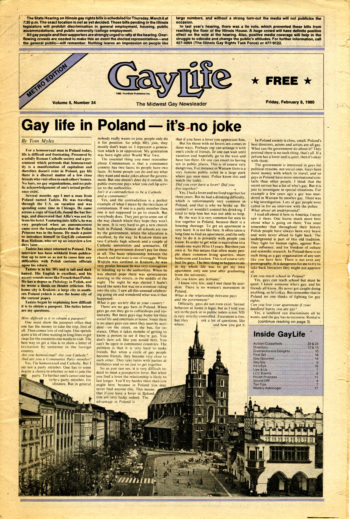
The Lesbian and Gay News-Telegraph
The Lesbian and Gay News-Telegraph was edited by Jim Thomas, who had helped organize St. Louis’ first Gay Pride Week in 1980. After witnessing a lack of communication between the gay and lesbian organizations in the city, he founded Piasa Publishing and began producing a monthly newspaper. Like Gay Life, the Telegraph featured political and entertainment articles and a directory, and it also had a calendar of events. It ran from 1981-2000, and at its height had a circulation of between ten and fifteen thousand copies, half of which were distributed locally. In the title bar of the issue below, you can see a map showing the locations of the papers’ distribution in the Midwest. You can find digitized issues of the Gay News-Telegraph from 1981-1990 here.
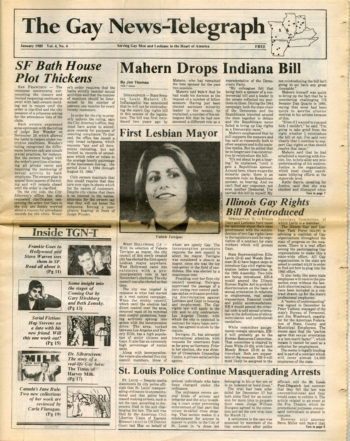
Current News
Current News was a weekly publication edited by A.M. Restivo that focused mainly on entertainment. It was distributed for free and contained numerous ads from local Missouri institutions. One of the most frequent advertisers is the Kansas City Cabaret, which frequently featured adult film stars and dancers in its shows.
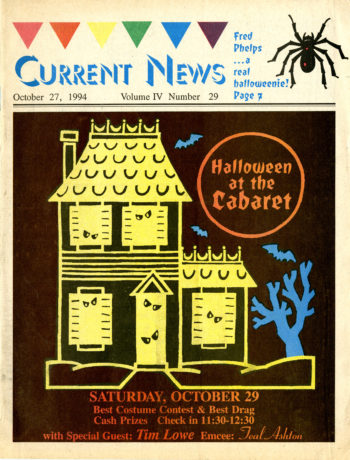
Further Reading
The above are only a few of the periodicals included in the LGBTQ+ Research Collection. Other titles include Expressions Magazine, Gratitude: Newsletter of St. Louis Effort for AIDS, Kolours, LesTalk, Out & Out, Out, Outlook, Pulse, and various Pridefest publications and guides, and those are just the local publications! You can find a complete list of the holdings in the LGBTQ+ Finding Aid. You can also use the Newspapers and Magazines section of our LGBTQ History Library Guide to find out more about publications both at Washington University and in other archives.
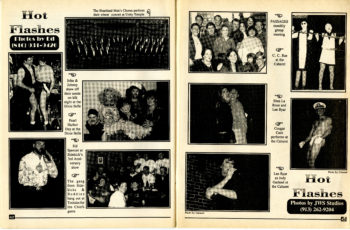
Many of these newspapers and the local events/business they advertise were used to create the Mapping LGBTQ St. Louis Project, a digital interactive map that explores how the region’s lesbian, gay, bisexual, transgender, and queer communities have changed from the end of World War II through 1992 when St. Louis city passed its first gay and lesbian inclusive civil rights ordinance. You can read more about the project in this previous blog post and more about how it was researched here.
